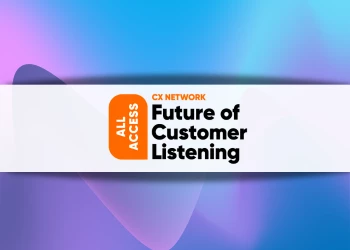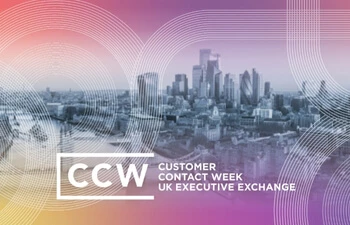4 Truths About Building Customer Loyalty
Add bookmarkIn the financial services industry trust is still a rare commodity, products are pretty much all the same and regulation is some of the strictest around. So how do you build strong, loyal customer relationships?
I’d like to share four truths that I’ve found to be, in the right mix, a very powerful and successful way to build more meaningful relationships that ultimately creates customer trust.
A little bit of history
If you're not familiar with financial services, it’s an industry hasn’t had the best of records when it comes to things like trust and loyalty. Some of it was deserved. Helping people save, for whatever reason or goal in life, is one of the biggest responsibilities a business can have.
It’s a responsibility Standard Life – where I work – has always understood and helps explains why we’ve been around for over 190 years. But this longevity isn’t due to any magic crystal ball; it comes from a continuous process of change: making sure you know who your customers are and what they want from life. It means making mistakes from time to time, but equally it means never standing still even when you're doing things right.
Finding the key
This was the easy bit. Our customers were the key. But we needed to understand how this key worked. This is where the truths come in.
1. Know your customers
This might sound obvious but it’s not. Think about your customers for a second. What do you have that allows you to know them? Be honest. Do you know your customers, or just know about them?
For us, our customers existed as data; names, addresses, ages, products. So yes, we knew about them, but we didn’t know them. Also our data ‘lived’ on different platforms and in different forms. We needed a single view of what we knew about our customers. To do that we created a new insight team. Their brief was (and still is) challenging: help our business know our customers. The team came up with using the concept of ‘personas’ which are pretty commonplace now. They’re a great way of knowing who your customers are because they, arguably, are people. By doing that, we changed the dynamic of how we designed our customer experiences. Now it’s about designing and improving with real people in mind, not categories of data or impersonal customer ‘types’. Thinking about what people want, or are telling you, is infinitely more compelling than what reams of data can reveal. This is only the foundation block of building trust however; we knew that we needed to do more in other areas.
2. Understand behaviour and you understand the problem
This was a direct follow-on from developing personas – human faces that represent who our customers are.Behaviouralscience is quite new to our industry. I’m told that we were the first FS brand to commission a study usingbehaviouralscience to see how ourbehavioursshape savings decision making. This was a very valuable study for us as it informed the personas we’d developed.
Understanding the why instead of the what when it comes to financial planning is a much richer soil in which to grow our propositions because it has its roots in human behavior. I would really recommend this approach to any business looking to build strong bonds of trust. A relationship based on understanding – in particular understanding why customers think and do certain things – is vital if you want those relationships to be long lasting.
3. Insight drives improvement
Insight is the lifeblood of our business – but it needs to flow. Insight is useless if it’s kept in a box. We’ve had some fantastic results from something that we created purely from insight. It’s called ‘Good to Go’ and, in a nutshell, it allows our customers (it’s aimed at small to medium business owners) to set up a new company pension scheme online in under six minutes.
Or put another way, in the time it takes to hard boil an egg, our customers can set up a new pension scheme for their employees. It's all done online. The idea was sparked by insight that our old set-up times were too long. We could’ve treated the symptom, but instead we treated the problem by launching something that addressed our customer’s needs and, crucially, through how well we knew them.
4. Be honest, learn from your mistakes
Of course, bonds of trust can easily be broken if a business doesn’t learn from its mistakes. There’s an old maxim in financial services: "Past performance is no guide to the future". But when it comes to creating customer experiences that fit with our customer’s thinking and stage in life, then past performance – or past experience – absolutely is a guide to the future.
One of the biggest tests of our ability to meet our customers’ needs happened in April 2015. On the day new pensions freedoms were introduced – where people had more flexibility to choose what they did with their pension savings – we knew we needed to be ready to answer more calls and more online enquiries than usual. In fact, we got our highest level of calls ever!
Dealing with that type of demand meant a very fast learning curve. Thanks to the way we work together (we’re big on collaboration) we’d drafted in help from other teams to get our customers the information and help they wanted. What we learned from this informs how we work in the future. The key is to be honest about what’s happened, why it happened and then put the learnings in place for the future.
Trust is renewed every day
What we’ve learned in applying these truths is, the more we get to know what our customers think about savings and how they feel about planning their financial lives, the more we can adapt the experiences we create for them.
And it’s through that continuous process of listening, understanding and adapting that trust bonds are created. But we know trust can disappear in a day. It makes our work challenging but, on a personal level, it’s also a lot of fun and very rewarding.
The last thing I wanted to mention was people. Having a great team around you, who share your enthusiasm, who understand the journey they are on and how these truths I’ve listed can all play a part on building loyalty, makes coming to work such a rewarding experience.





















